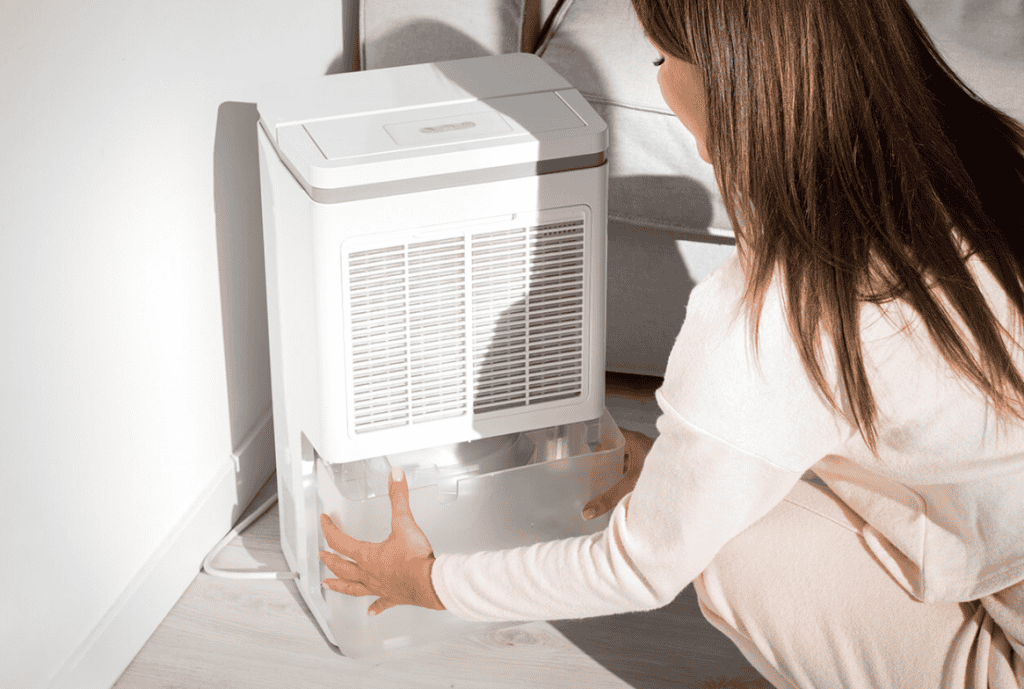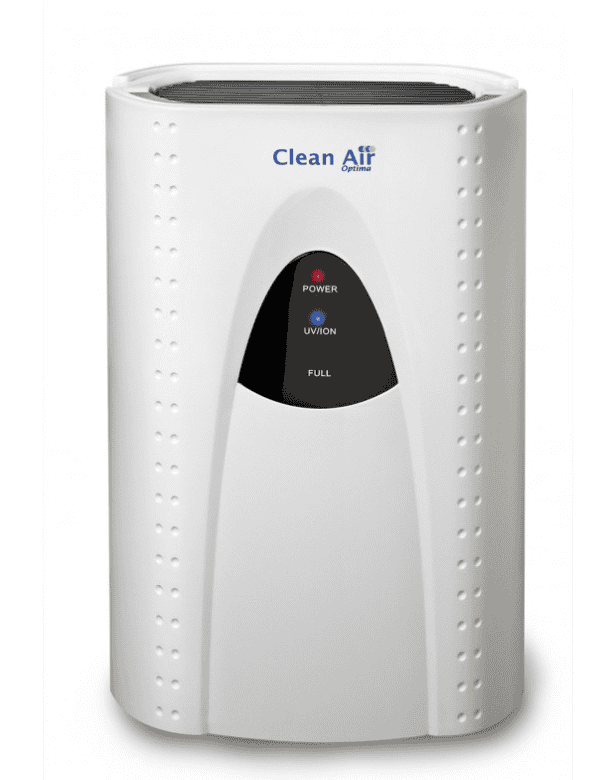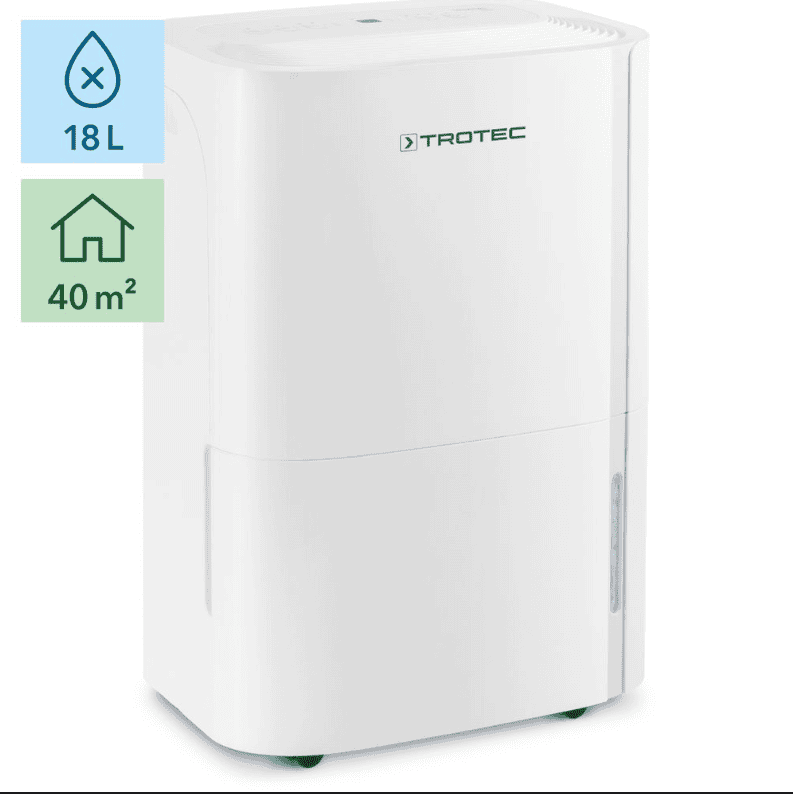An air cleaner, also known as an air purifier, is a device that removes contaminants from the air in a room. These contaminants can include dust, pollen, pet dander, smoke, and other particles. Air cleaners can help to improve air quality and reduce the risk of respiratory problems.
A dehumidifier is a device that removes moisture from the air. This can help to reduce humidity levels in a room, which can make the air feel more comfortable and prevent the growth of mold and mildew. Dehumidifiers can also be used to dry out damp areas, such as basements or crawl spaces.

The Benefits of Using an Air Cleaner and Dehumidifier Together
Indoor air quality is paramount for our health and well-being. Air cleaners and dehumidifiers are two essential appliances that work synergistically to enhance the air we breathe.
Air cleaners effectively remove airborne pollutants such as dust, pollen, pet dander, and smoke. These particles can trigger allergies, asthma, and other respiratory issues. By capturing and filtering these contaminants, air cleaners improve air quality, reducing the risk of health problems.
Dehumidifiers, on the other hand, control moisture levels in the air. Excess humidity can create a breeding ground for mold, mildew, and bacteria, which can cause respiratory problems and exacerbate allergies. Dehumidifiers remove excess moisture from the air, creating a healthier and more comfortable indoor environment.
When used together, air cleaners and dehumidifiers provide a comprehensive solution for improving indoor air quality. Air cleaners remove airborne pollutants, while dehumidifiers reduce moisture levels, creating an environment that is free from allergens, mold, and bacteria.
The benefits of using an air cleaner and dehumidifier together are numerous. Improved air quality can lead to reduced allergy and asthma symptoms, better sleep, and increased overall well-being. Additionally, a healthier indoor environment can protect against respiratory infections and other health issues.
Furthermore, air cleaners and dehumidifiers can help preserve the integrity of your home. Excess moisture can damage furniture, walls, and other surfaces. By controlling humidity levels, dehumidifiers prevent mold growth and other moisture-related problems, extending the lifespan of your home.
Choosing the right air cleaner and dehumidifier for your needs is essential. Consider the size of your space, the level of pollutants and moisture, and your budget. It is also important to maintain your appliances regularly to ensure optimal performance.
In conclusion, combining an air cleaner and dehumidifier is a wise investment in your health and the well-being of your home. By removing airborne pollutants and controlling moisture levels, these appliances create a healthier and more comfortable indoor environment, reducing the risk of health problems and preserving the integrity of your property.

How to Choose the Right Air Cleaner and Dehumidifier for Your Home
Maintaining a healthy and comfortable indoor environment is crucial for overall well-being. Air cleaners and dehumidifiers play vital roles in improving air quality and reducing humidity levels, respectively. However, choosing the right devices for your specific needs can be daunting.
Air Cleaners: Removing Airborne Contaminants
Air cleaners are designed to remove airborne particles, such as dust, pollen, pet dander, and smoke. They work by using filters or electrostatic precipitation to trap these contaminants. For homes with allergies or respiratory issues, an air cleaner can significantly reduce the presence of irritants, improving air quality and reducing symptoms.
Dehumidifiers: Controlling Humidity Levels
Dehumidifiers remove excess moisture from the air, creating a more comfortable and healthier environment. High humidity levels can lead to mold growth, dust mites, and other allergens. Dehumidifiers are particularly beneficial in humid climates or during seasons with high rainfall.
Choosing the Right Device for Your Needs
The best choice for your home depends on your specific requirements. If your primary concern is improving air quality, an air cleaner is the ideal solution. However, if you need to control humidity levels, a dehumidifier is the better option.
Combination Units: air cleaner and dehumidifier in One
For homes that require both air purification and humidity control, combination units offer a convenient solution. These devices combine the functionality of an air cleaner and a dehumidifier into a single unit, saving space and simplifying maintenance.
Factors to Consider When Choosing
When selecting an air cleaner or dehumidifier, consider the following factors:
- Room Size: Choose a device with a capacity appropriate for the size of the room you want to treat.
- Airflow Rate: For air cleaners, a higher airflow rate indicates better air circulation and filtration efficiency.
- Filter Type: Air cleaners use different types of filters, such as HEPA filters or activated carbon filters. Choose a filter that effectively removes the contaminants you are concerned about.
- Water Tank Capacity: For dehumidifiers, a larger water tank capacity means less frequent emptying.
- Energy Efficiency: Look for devices with high energy efficiency ratings to minimize operating costs.
Maintenance and Care
Regular maintenance is essential for optimal performance. Air cleaners require regular filter changes, while dehumidifiers need to be emptied and cleaned periodically. Following the manufacturer’s instructions for maintenance will ensure the longevity and effectiveness of your devices.
By carefully considering your needs and the factors discussed above, you can choose the right air cleaner or dehumidifier to improve the air quality and comfort of your home, creating a healthier and more enjoyable living environment.

Troubleshooting Common Problems with Air Cleaners and Dehumidifiers
Air cleaners and dehumidifiers are essential appliances for maintaining a healthy and comfortable indoor environment. However, like any other appliance, they can occasionally encounter problems. Here are some common issues and their potential solutions:
Air Cleaner Problems:
- Reduced airflow: Check if the air filter is clogged and needs replacing. A dirty filter can restrict airflow, reducing the cleaner’s effectiveness.
- Loud noises: Inspect the fan blades for any obstructions or damage. If the blades are bent or broken, they can create excessive noise.
- No power: Ensure that the cleaner is plugged in and the power switch is turned on. Check the circuit breaker or fuse to rule out any electrical issues.
Dehumidifier Problems:
- Water not draining: Verify that the drain hose is properly connected and not kinked. If the hose is clear, check the drain pan for any debris or blockages.
- Excessive noise: Similar to air cleaners, inspect the fan blades for obstructions or damage. Additionally, ensure that the dehumidifier is placed on a level surface to prevent vibrations.
- Low humidity levels: Adjust the humidity setting on the dehumidifier to a higher level. If the problem persists, check the refrigerant levels or consider replacing the unit.
Common Problems for Both Air Cleaners and Dehumidifiers:
- Musty odor: This can indicate mold or mildew growth. Clean the appliance thoroughly with a bleach solution and ensure proper ventilation.
- Water leaks: Inspect the water tank or drain hose for any cracks or leaks. Tighten any loose connections or replace damaged components.
- Electrical issues: If the appliance is not responding or is sparking, immediately unplug it and contact a qualified electrician.
Preventive Maintenance:
To minimize problems, it’s crucial to perform regular maintenance on both air cleaners and dehumidifiers. This includes:
- Replacing air filters regularly (every 3-6 months)
- Cleaning the water tank and drain hose periodically
- Inspecting the fan blades and other components for damage
- Ensuring proper ventilation around the appliances
By addressing common problems promptly and following preventive maintenance guidelines, you can ensure that your air cleaner and dehumidifier continue to operate efficiently, providing a healthier and more comfortable indoor environment.
The Pros and Cons of Using a Dehumidifier and Air Cleaner
Air cleaners and dehumidifiers are two common household appliances that can improve indoor air quality and comfort. However, it’s important to understand the differences between these devices and their respective advantages and disadvantages before making a purchase decision.
Air Cleaners
Air cleaners remove airborne particles, such as dust, pollen, and pet dander, from the air. They are particularly beneficial for individuals with allergies or respiratory conditions. Air cleaners come in various types, including HEPA filters, electrostatic precipitators, and ionizers.
Pros:
- Improve air quality by removing allergens and pollutants
- Reduce symptoms of allergies and asthma
- Can help prevent the spread of airborne diseases
Cons:
- Can be noisy
- Require regular filter changes
- May not be effective against all types of pollutants
Dehumidifiers
Dehumidifiers remove excess moisture from the air, creating a drier environment. They are useful in humid climates or during seasons when humidity levels are high. Dehumidifiers can help prevent mold growth, reduce condensation, and improve comfort levels.
Pros:
- Reduce humidity levels, making the air feel more comfortable
- Prevent mold growth and other moisture-related problems
- Can help alleviate symptoms of respiratory conditions
Cons:
- Can be bulky and noisy
- May require frequent emptying of the water reservoir
- Can dry out the air excessively, leading to skin irritation
Combination Units
Some appliances combine the functions of an air cleaner and a dehumidifier into a single unit. These combination units offer the benefits of both devices, but they can also be more expensive and complex to maintain.
Choosing the Right Device
The best choice for your home depends on your specific needs and preferences. If you primarily want to improve air quality, an air cleaner is a good option. If you need to reduce humidity levels, a dehumidifier is more suitable. For a comprehensive solution, a combination unit may be the best choice.
Conclusion
Air cleaners and dehumidifiers can significantly improve indoor air quality and comfort. By understanding the differences between these devices and their respective pros and cons, you can make an informed decision about which appliance is right for your home. Remember to consider your specific needs, budget, and maintenance requirements before making a purchase.
Q&A
What is the difference between an air cleaner and a dehumidifier?
An air cleaner removes pollutants and allergens from the air, while a dehumidifier removes excess moisture from the air.
Which is better, an air cleaner or a dehumidifier?
It depends on your specific needs. If you have allergies or asthma, an air cleaner may be more beneficial. If you live in a humid climate, a dehumidifier may be more effective.
Can I use an air cleaner and a dehumidifier together?
Yes, you can use an air cleaner and a dehumidifier together to improve the air quality in your home.
What are the benefits of using an air cleaner and a dehumidifier?
Using an air cleaner and a dehumidifier can improve your health by reducing allergies, asthma, and other respiratory problems. It can also make your home more comfortable by reducing humidity and removing pollutants.
Conclusion
Air cleaners and dehumidifiers are both effective in improving indoor air quality. Air cleaners remove pollutants from the air, while dehumidifiers remove moisture from the air. Both types of appliances can help to reduce allergies, asthma, and other respiratory problems.
Air cleaners are best suited for removing pollutants from the air, such as dust, pollen, and pet dander. Dehumidifiers are best suited for removing moisture from the air, which can help to prevent mold and mildew growth.
If you are looking for an appliance that can both clean the air and remove moisture, you may want to consider a combination air cleaner and dehumidifier. These appliances are available in a variety of sizes and price ranges, so you can find one that fits your needs and budget.
